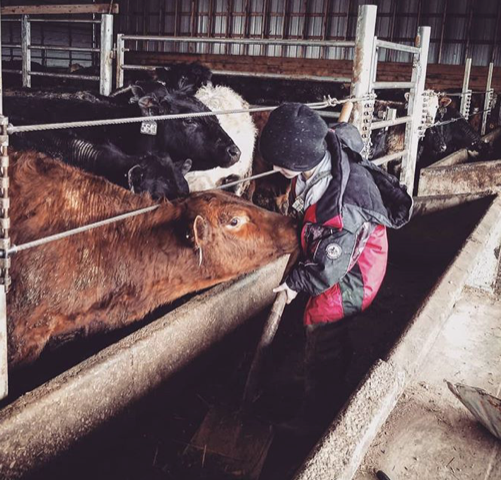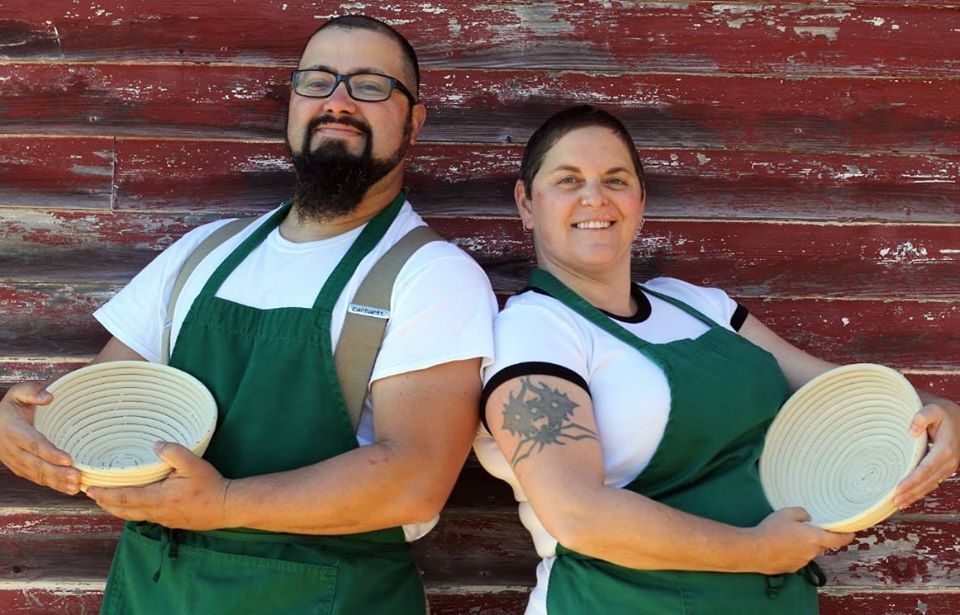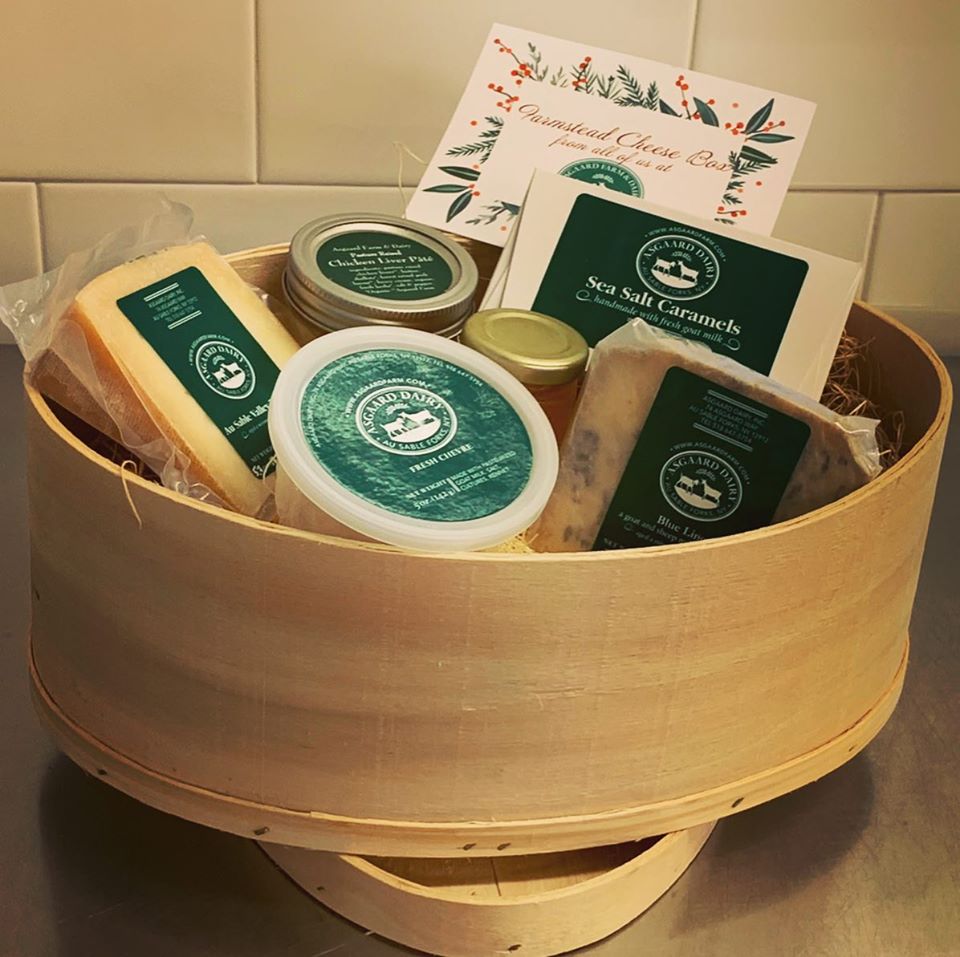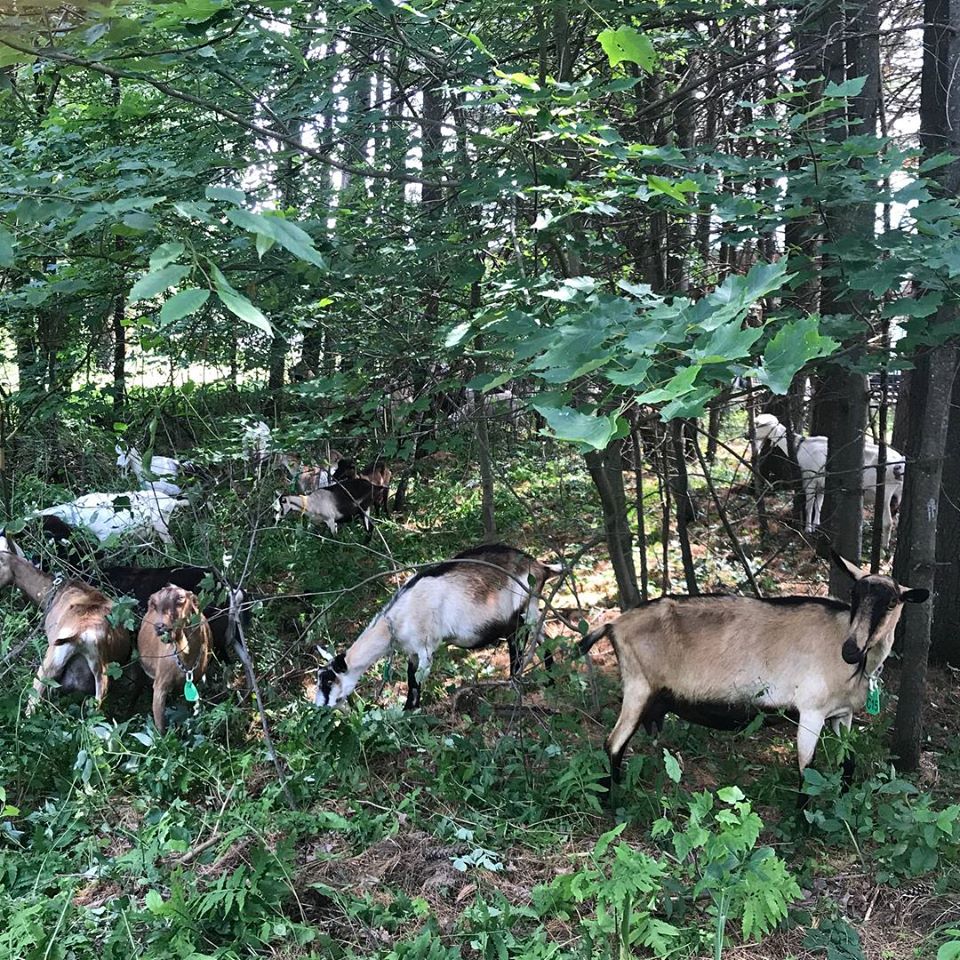By Tim Rowland
When Gov. Andrew Cuomo signed the executive order in March that shut down state commerce, Katie and Brandon Donahue, owners of Donahue’s Livestock Farm in North Bangor, had 30 sizable orders of top-shelf, hormone- and antibiotic-free beef and pork in the cooler destined for North Country restaurants.
Within minutes of the shutdown order, Donahue’s phone began blowing up with cancellations. Restaurants were either shutting down altogether or going to a pickup/delivery model that relied less on the more expensive, hence more profitable, cuts. By the end of the day, 27 of the 30 restaurants had called to cancel.
“I was panicking,” Donahue said. “I have 700 cows out in the field that still have to eat, and they don’t care about the coronavirus.”

Donahue’s Cattle 
Friends at Donahue’s
Adirondack farmers have a long tradition of creativity and adaptability, born of difficult markets, difficult soil and difficult weather. And once again, “the coronavirus has forced us to adapt,” said Dan Rivera, a baker who, with his wife Kim, owns Triple Green Jade Farm in Willsboro. “(Producers) knew immediately that we had to switch our model.”

Dan and Kim Rivera at Triple Green Jade Farm and Bakery
They began with experimentation and collaboration. Farmers, who stereotypically enjoy the solitude of their fields, were now meeting with PTA-like regularity, comparing notes about opportunities presented by farmers markets, delivery models, co-ops and CSAs. Farmers’ markets have been deemed essential so they will go on, but with a different set of distancing ground rules.
Rivera said farms that sold directly to the consumers were in relatively better shape than those who sold to restaurants, which were now by law restricted to outside sales. Direct-to-consumer sales began to pop, even encouraging producers to expand their planned crops, rather than scaling back. Indeed, an unforeseen bond between producers and consumers rapidly developed, as members of the community turned in increasing numbers to local farmers for their food.
David Brunner, who with Rhonda Butler owns Asgaard Farm and Dairy in Jay, said nearly half of his 45 regular commercial buyers “evaporated” when the economy was shut down. So Asgaard pivoted hard, turning to the Farmers’ Park-It in Saranac Lake and creating an online farm store selling cheese, meats, butter, eggs and other products for pick up at the farm.

A sampling of Asgaard’s products 
Asgaard goats feasting in the shade
“It changed our model in a way,” Brunner said. “Many of these things we had thought about for a long time, but this was the impetus” to put them into practice.
Both Brunner and Rivera said local-consumer interest in local producers has been strong. Some of the demand comes from residents in the community who, in the spirit of “we’re all in this together,” want to support their neighbors in troubled times. But there also has been something of an awakening, as people — their television screens showing shots of empty supermarket shelves — have been forced to think about where their food comes from, and consider the vulnerability of the nation’s meat supply when such a large percentage of the supply is processed at a handful of plants.
At Donahue’s Livestock Farm, Katie Donahue said she’s been able to make up for the loss of restaurants with direct, grass roots sales, advertising on Craig’s List, social media and community newsletters. “We hadn’t pushed too much in the private markets because the restaurants kept us busy,” she said.
She offered CSAs, monthly subscriptions for beef and pork with a selection of cuts and “orders skyrocketed,” she said. One customer called and said he wanted bacon, sausage, burger and ribeye steaks. “And with that call the ‘custom box’ was born,” Donahue said, which tailors meat CSA’s to the customers’ liking.
Although the plans were cobbled together on the fly, they have worked. “I was scared at first, but it’s been going very well,” Donahue said. “There are more people now who want to know where their food comes from.”
Some of the new ways will turn out to be better ways, Brunner said, and will endure after the pandemic subsides. For example, Asgaard’s store had limited hours, but online order and pick-up means that it can operate Monday through Saturday. And beyond that, the pandemic has, in its way, knitted the community more tightly, Brunner said, because “It’s cemented the relationships between farmer and customer.
About the author: Tim Rowland is a freelance writer raising belted Galloway beef cattle in Jay, New York.
